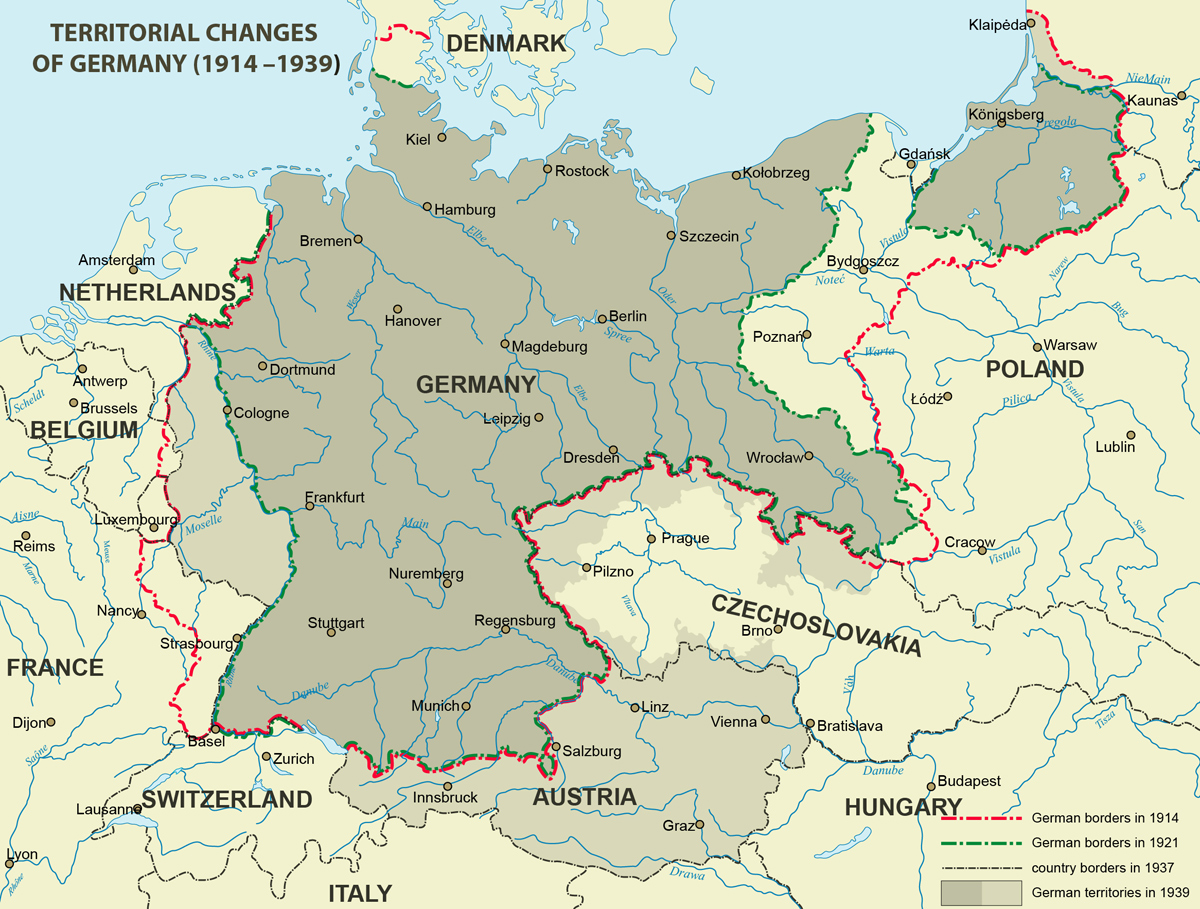The Germans felt disappointed by the resolutions of the Treaty of Versailles concluding the First World War. The German state was forced to cede to neighbouring countries around 13% of its territories and to renounce all its colonial possessions. A unilateral disarmament was imposed on Germany. Considerable restrictions limited Germany’s possession of weapons, navy and air force, whereas the number of its soldiers and officers was reduced to 100,000. Moreover, considered to be responsible for starting the war, Germany was forced to the pay 132 billion marks in gold in reparations to the Allied powers. In Germany, the conditions of the Treaty of Versailles were seen as unfair and excessively damaging, causing thus deep resentment in German society. Consequently, many Germans no longer identified themselves with the Social Democratic government, which signed the treaty and was therefore accused of betraying national interests. Feelings of being hurt and humiliated were intensified by the economic situation at the beginning of the 1920s with hyperinflation and general impoverishment of society. Government efforts and external aid—including the Dawes plan (1924) and the Young plan (1929) as well as the ultimate reduction in the German debt (Lausanne Conference, 9 July 1932)—were supposed to save the Weimar Republic from its imminent collapse.

